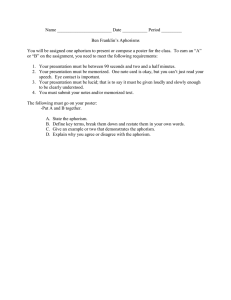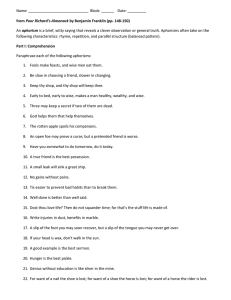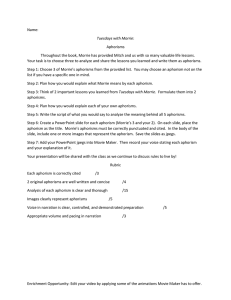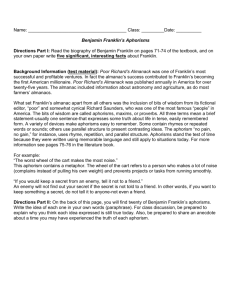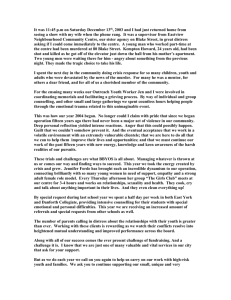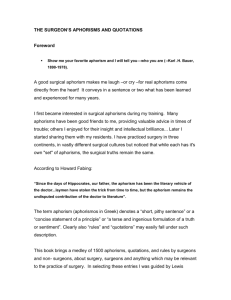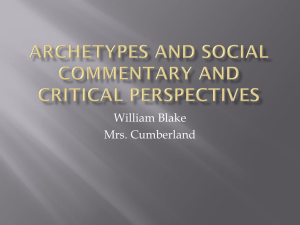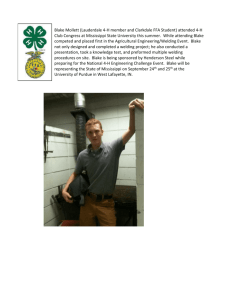Aphorisms - The Blake Society
advertisement
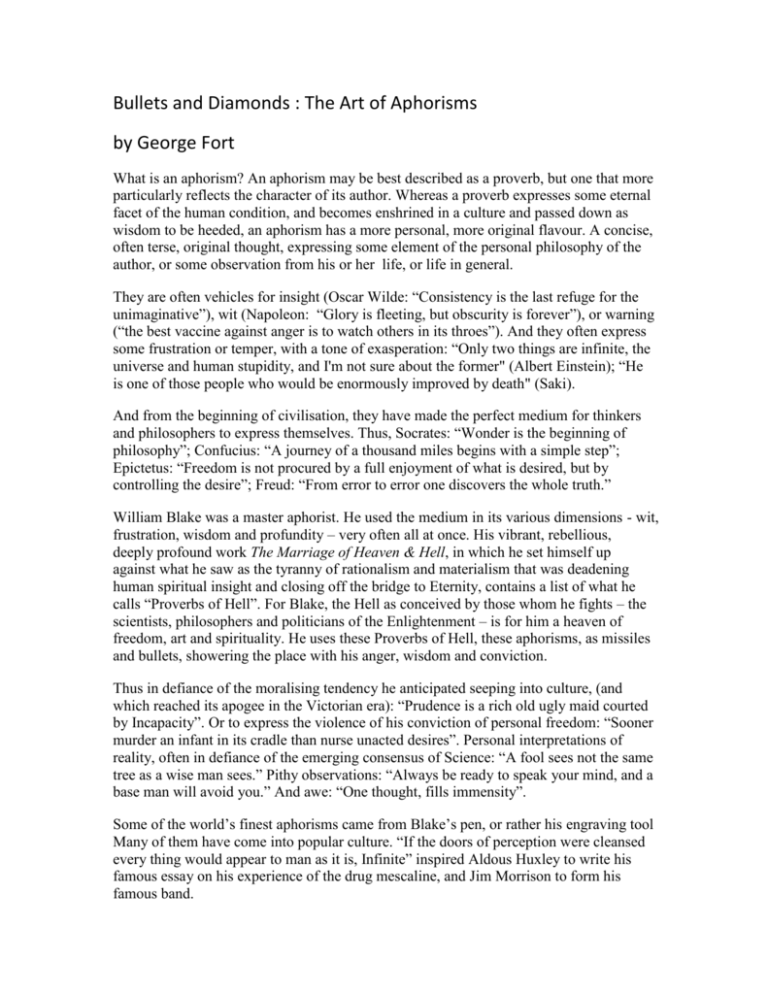
Bullets and Diamonds : The Art of Aphorisms by George Fort What is an aphorism? An aphorism may be best described as a proverb, but one that more particularly reflects the character of its author. Whereas a proverb expresses some eternal facet of the human condition, and becomes enshrined in a culture and passed down as wisdom to be heeded, an aphorism has a more personal, more original flavour. A concise, often terse, original thought, expressing some element of the personal philosophy of the author, or some observation from his or her life, or life in general. They are often vehicles for insight (Oscar Wilde: “Consistency is the last refuge for the unimaginative”), wit (Napoleon: “Glory is fleeting, but obscurity is forever”), or warning (“the best vaccine against anger is to watch others in its throes”). And they often express some frustration or temper, with a tone of exasperation: “Only two things are infinite, the universe and human stupidity, and I'm not sure about the former" (Albert Einstein); “He is one of those people who would be enormously improved by death" (Saki). And from the beginning of civilisation, they have made the perfect medium for thinkers and philosophers to express themselves. Thus, Socrates: “Wonder is the beginning of philosophy”; Confucius: “A journey of a thousand miles begins with a simple step”; Epictetus: “Freedom is not procured by a full enjoyment of what is desired, but by controlling the desire”; Freud: “From error to error one discovers the whole truth.” William Blake was a master aphorist. He used the medium in its various dimensions - wit, frustration, wisdom and profundity – very often all at once. His vibrant, rebellious, deeply profound work The Marriage of Heaven & Hell, in which he set himself up against what he saw as the tyranny of rationalism and materialism that was deadening human spiritual insight and closing off the bridge to Eternity, contains a list of what he calls “Proverbs of Hell”. For Blake, the Hell as conceived by those whom he fights – the scientists, philosophers and politicians of the Enlightenment – is for him a heaven of freedom, art and spirituality. He uses these Proverbs of Hell, these aphorisms, as missiles and bullets, showering the place with his anger, wisdom and conviction. Thus in defiance of the moralising tendency he anticipated seeping into culture, (and which reached its apogee in the Victorian era): “Prudence is a rich old ugly maid courted by Incapacity”. Or to express the violence of his conviction of personal freedom: “Sooner murder an infant in its cradle than nurse unacted desires”. Personal interpretations of reality, often in defiance of the emerging consensus of Science: “A fool sees not the same tree as a wise man sees.” Pithy observations: “Always be ready to speak your mind, and a base man will avoid you.” And awe: “One thought, fills immensity”. Some of the world’s finest aphorisms came from Blake’s pen, or rather his engraving tool Many of them have come into popular culture. “If the doors of perception were cleansed every thing would appear to man as it is, Infinite” inspired Aldous Huxley to write his famous essay on his experience of the drug mescaline, and Jim Morrison to form his famous band. Blake’s poetry is filled with diamonds of insight that are essentially aphorisms; his poem Auguries of Innocence is a treasure-trove of such gems. He ranks as high as any in the aphorist stakes. In fact, they count as one of the best ways in to understanding his particular character as a man, and depth as a thinker. May 2014
